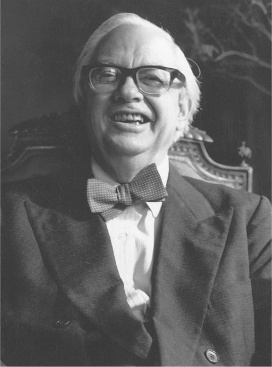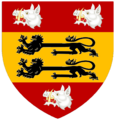Woodrow Wyatt facts for kids
Quick facts for kids
The Lord Wyatt of Weeford
|
|
|---|---|
 |
|
| Member of Parliament for Bosworth |
|
| In office 8 October 1959 – 29 May 1970 |
|
| Preceded by | Arthur Allen |
| Succeeded by | Adam Butler |
| Member of Parliament for Birmingham Aston |
|
| In office 5 July 1945 – 6 May 1955 |
|
| Preceded by | Redvers Prior |
| Succeeded by | Julius Silverman |
| Personal details | |
| Born |
Woodrow Lyle Wyatt
4 July 1918 Surrey, England |
| Died | 7 December 1997 (aged 79) London, England |
| Political party | Labour |
| Spouses |
Susan Cox
(divorced)Nora Robbins
(divorced)Lady Moorea Hastings
(m. 1957; div. 1966)Verushka Banszky von Ambroz (née Racz)
(m. 1966) |
| Children | Pericles Plantagenet James Casati Wyatt (by third wife Moorea Hastings) Petronella Aspasia Wyatt (by fourth wife Veronica Banszky von Ambroz) |
| Education | Eastbourne College |
| Alma mater | Worcester College, Oxford |
Woodrow Lyle Wyatt, Baron Wyatt of Weeford (born 4 July 1918 – died 7 December 1997) was an important British figure. He was a politician, an author, a journalist, and a broadcaster. He was known for his connections with important figures like Queen Elizabeth The Queen Mother, Prime Minister Margaret Thatcher, and media owner Rupert Murdoch. For the last 20 years of his life, he led The Tote. The Tote is a national organization for betting on horse races.
Contents
Early Life and Military Service (1918–1945)
Woodrow Wyatt was born in Kingston upon Thames, southwest London. He was the second son of Robert Harvey Lyle Wyatt. His father founded and was the headmaster of Milbourne Lodge School. Woodrow was named after American President Woodrow Wilson. This was because he was born on America's Independence Day.
He went to Eastbourne College and then Worcester College, Oxford. There, he studied law and finished his degree in 1939. Just before the Second World War began, he joined the army. He served with the Suffolk Regiment and became a major. Wyatt was sent to Normandy right after D-Day. He was recognized for his brave actions during the war. He was later posted to India.
Becoming a Member of Parliament (1945–1955)
In 1945, Wyatt was elected to Parliament. He became a Labour Member of Parliament (MP) for Birmingham Aston. He held this seat until 1955.
In 1946, he worked with the Cabinet Mission to India. He helped connect the mission with the All-India Muslim League. Wyatt was part of a group of Labour MPs called "Keep Left." They wrote a pamphlet in 1947. In it, he said the government should have sent soldiers home faster.
In April 1951, Clement Attlee made Wyatt an Under-Secretary at the War Office. He held this job for six months. Then, the Labour Party lost the election in October 1951. Wyatt published a book called Into the Dangerous World in 1952. After his Aston area was divided, he lost his seat in the 1955 election. He ran in Grantham, which was the hometown of his later friend, Margaret Thatcher.
A Career in Journalism (1955–1959)
After leaving Parliament, Wyatt became a well-known journalist. Edward R. Murrow from CBS noticed him during the 1955 election. Grace Wyndham Goldie at the BBC was also impressed. She asked Wyatt to join Richard Dimbleby on the TV show Panorama. He became their foreign affairs reporter. Wyatt later said that his TV appearances made him famous. Millions of people watched Panorama.
In 1956, while filming in Algeria, Wyatt and his crew were attacked. French settlers thought they were Americans.
Wyatt also reported on important union issues. In 1956, he learned that some people were trying to take over the Amalgamated Engineering Union (AEU). They were falsifying votes for union leaders. Wyatt made a Panorama program about this. He said his program helped stop the unfair voting. This saved the AEU from being controlled by extremists.
He wrote articles about the dangers of unfair practices in trade unions. These were published as a pamphlet called The Peril in Our Midst. In 1957, Wyatt visited South Africa to report on apartheid. He said the treatment of black South Africans was terrible. His program showed millions in Britain what life was like there. The South African government complained about his report.
Wyatt continued to expose unfair voting in unions. He made another Panorama program about the Electrical Trades Union (ETU). This led to a court case in 1961. The court found that the 1959 election for the ETU's general secretary was rigged. Wyatt strongly supported secret ballots for union elections. This idea later became law in 1988.
Wyatt also worked with a secret government branch. This group, called the Information Research Department (IRD), spread anti-communist information. Wyatt helped them publish these messages.
Return to Parliament (1959–1970)
Wyatt returned to Parliament in 1959. He became the MP for Bosworth. He was known for speaking his mind. In 1960, he called a union leader "the bully with the block vote." This phrase stuck with the public.
In 1961, Wyatt suggested that the Labour Party should work with the Liberal Party. This was to keep the Conservatives out of power. The Labour Party leader, Hugh Gaitskell, was very angry. Wyatt was warned that he might be expelled from the party if he continued. He agreed to stop pushing the idea.
Wyatt often disagreed with his party. For example, he voted against the government's plan to take over the steel industry again. He also published a book of interviews with the philosopher Bertrand Russell in 1960. Wyatt lost his seat in the 1970 general election.
Later Career and Public Life (1970–1997)
After leaving politics, Wyatt became Chairman of the Horserace Totalisator Board in 1976. He held this position until 1997. He worked to improve the organization. One person said he "turned it round" and "made it a force in betting."
Wyatt was also a very active journalist. He wrote a popular column called 'The Voice of Reason' for the News of the World newspaper. Millions of people read his column. By the late 1970s, his political views had changed. He became a big admirer of Margaret Thatcher. He often gave her advice, even calling her late at night or on Sunday mornings.
He was against economic penalties on South Africa during apartheid. He wrote that Nelson Mandela and the ANC wanted a "communist-style black dictatorship." He visited South Africa in 1986. He also interviewed President Botha and urged him to allow the ANC to operate freely.
Wyatt was made a knight in 1983. In 1987, he was given the title Baron Wyatt of Weeford. This made him a life peer, meaning he could sit in the House of Lords. The Wyatt family had lived in Weeford in the 1600s.
His autobiography, Confessions of an Optimist, was published in 1985. In the mid-1980s, he helped Rupert Murdoch with a big move for his newspaper business. Wyatt also started his own newspaper and printing business, but it did not succeed.
After Margaret Thatcher left office in 1990, Wyatt supported John Major. His daughter, Petronella Wyatt, wrote a book about him in 2000.
Personal Life
Woodrow Wyatt was married four times.
- His first wife was Susan Cox. They had no children.
- His second wife was Nora Robbins, his secretary. They also had no children.
- His third wife was Lady Moorea Hastings. They married in 1957 and divorced in 1966. They had one son, Pericles Plantagenet James Casati Wyatt.
- His fourth wife was Veronica "Verushka" Banszky von Ambroz. They married in 1966. They had one daughter, the journalist Petronella Wyatt.
He made sure his first child was cared for by cousins when his wife was not able to. When they divorced, he was given custody of his son.
Wyatt lived for a time in an old house called Conock Old Manor in Wiltshire. He was a cousin of the famous England Test cricket player Bob Wyatt. He was also a descendant of the well-known architectural Wyatt family.
Woodrow Wyatt died in Camden, north London, on 7 December 1997. He was 79 years old. He is buried in Weeford, Staffordshire, where his family came from.
Works
- Into the Dangerous World (1952)
- Southwards from China: A Survey of South East Asia since 1945 (1952)
- The Peril in Our Midst (1956)
- Bertrand Russell speaks his Mind (1960)
- Turn Again, Westminster (1973)
- What's Left of the Labour Party? (1977)
- To The Point (1981)
- Confessions of an Optimist (1985)
- The Journals of Woodrow Wyatt. Volume One (1998)
- The Journals of Woodrow Wyatt. Volume Two: Thatcher's Fall and Major's Rise (1999)
- The Journals of Woodrow Wyatt. Volume Three: From Major to Blair (2000)
Images for kids
 | William L. Dawson |
 | W. E. B. Du Bois |
 | Harry Belafonte |



